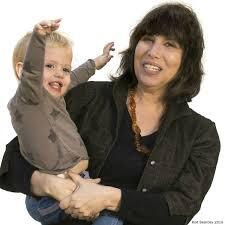What do you think?
Rate this book


For most of us, having a baby is the most profound, intense, and fascinating experience of our lives. Now scientists and philosophers are starting to appreciate babies, too. The last decade has witnessed a revolution in our understanding of infants and young children. Scientists used to believe that babies were irrational, and that their thinking and experience were limited. Recently, they have discovered that babies learn more, create more, care more, and experience more than we could ever have imagined. And there is good reason to believe that babies are actually smarter, more thoughtful, and even more conscious than adults.
This new science holds answers to some of the deepest and oldest questions about what it means to be human. A new baby’s captivated gaze at her mother’s face lays the foundations for love and morality. A toddler’s unstoppable explorations of his playpen hold the key to scientific discovery. A three-year-old’s wild make-believe explains how we can imagine the future, write novels, and invent new technologies. Alison Gopnik - a leading psychologist and philosopher, as well as a mother - explains the groundbreaking new psychological, neuroscientific, and philosophical developments in our understanding of very young children, transforming our understanding of how babies see the world, and in turn promoting a deeper appreciation for the role of parents.
288 pages, Hardcover
First published January 1, 2003

"...What is it like to be a baby? A two-year-old offers a hungry-looking stranger a half-chewed lollipop. Could a child this young already feel empathy and be altruistic? A three-year-old announces that she will come to dinner only if a place is laid for the Babies, the tiny purple-haired twins who live in her pocket and eat flowers for breakfast. How could she believe so profoundly in something that is just a figment of her own imagination? And how could she dream up such remarkable creatures? A five-year-old discovers, with the help of a goldfish, that death is irreversible. How could a child who can’t yet read or add uncover deep, hard truths about mortality? The one month- old turns into the two-year-old and then the three-year-old and the five-year-old and eventually, miraculously, turns into a mother with children of her own. How could all these utterly different creatures be the same person? All of us once were children and most of us will become parents— we have all asked these sorts of questions."
"New scientific research and philosophical thinking have both illuminated and deepened the mystery. In the last thirty years, there’s been a revolution in our scientific understanding of babies and young children. We used to think that babies and young children were irrational, egocentric, and amoral. Their thinking and experience were concrete, immediate, and limited. In fact, psychologists and neuroscientists have discovered that babies not only learn more, but imagine more, care more, and experience more than we would ever have thought possible. In some ways, young children are actually smarter, more imaginative, more caring, and even more conscious than adults are..."
Nothing in this book will help parents get their children to sleep or send them to a good college or guarantee them a happy adult life. But I hope it will help parents, and people who aren't parents too, to appreciate the richness and significance of childhood in a new way."The book fulfilled its objective for me!